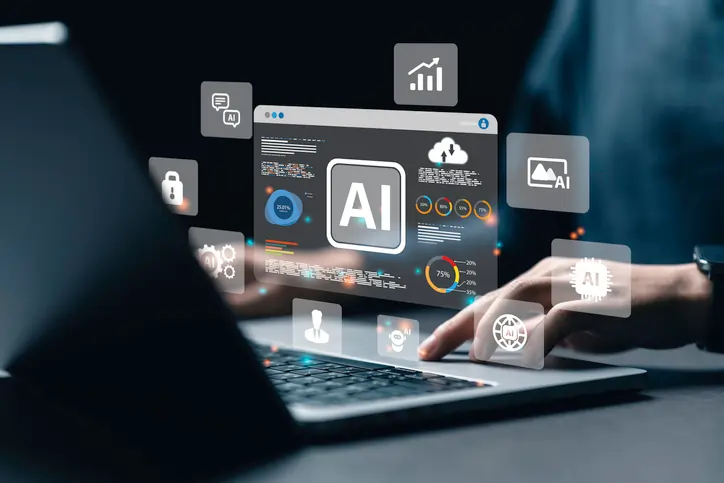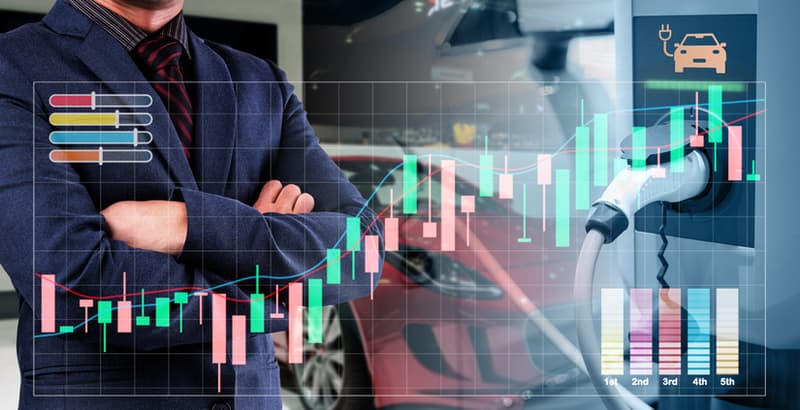
Applications of artificial intelligence
Artificial Intelligence (AI) has emerged as a groundbreaking technology with the potential to revolutionize various aspects of our lives. From healthcare to finance, AI applications are reshaping industries and driving innovation. In this exploration of the applications of artificial intelligence, we’ll delve into how this transformative technology is making an impact across diverse sectors, improving efficiency, decision-making processes, and overall user experiences.
Healthcare advancements
Diagnosis and treatment planning
In healthcare, AI is playing a pivotal role in diagnosis and treatment planning. Machine learning algorithms analyze vast datasets, including patient records, medical literature, and imaging results, to assist healthcare professionals in identifying patterns and making more accurate diagnoses. This not only enhances the speed of diagnosis but also contributes to personalized treatment plans tailored to individual patient needs.
Drug discovery and development
The pharmaceutical industry is leveraging AI to expedite the drug discovery and development process. AI algorithms can analyze molecular structures, predict potential drug candidates, and simulate their interactions within the human body. This accelerates the identification of promising compounds, reduces costs, and brings new medications to market more efficiently.
Transforming finance
Algorithmic trading
In the financial sector, AI is a game-changer in the form of algorithmic trading. Machine learning algorithms analyze market trends, historical data, and news sentiment in real-time to make split-second trading decisions. This not only maximizes profit potential but also mitigates risks by responding swiftly to market fluctuations.
Fraud detection and prevention
AI is a formidable ally in the fight against financial fraud. Machine learning models can detect unusual patterns and behaviors in transactions, flagging potentially fraudulent activities before they cause significant harm. This proactive approach to fraud prevention safeguards both financial institutions and their customers.
Enhancing education
Personalized learning
AI is revolutionizing education through personalized learning experiences. Adaptive learning platforms use AI algorithms to assess individual student performance, tailor content to their learning styles, and provide targeted support. This fosters a more engaging and effective educational environment, catering to the unique needs of each student.
Automated grading
Educators are benefiting from AI-powered automated grading systems. These systems can evaluate assignments, quizzes, and exams, providing prompt and consistent feedback to students. This not only saves educators valuable time but also ensures fair and objective assessment practices.
Improving customer experiences
Chatbots and virtual assistants
In the realm of customer service, AI-driven chatbots and virtual assistants are becoming increasingly prevalent. These intelligent systems can engage with customers in natural language, answering queries, providing information, and even executing tasks. This not only enhances customer satisfaction but also frees up human agents to focus on more complex issues.
Recommendation systems
AI is behind the recommendation engines that power platforms like Netflix, Amazon, and Spotify. These systems analyze user behavior, preferences, and historical data to offer personalized content recommendations. This not only enhances user experience but also contributes to increased user engagement and loyalty.
Advancements in manufacturing
Predictive maintenance
In the manufacturing sector, AI is transforming maintenance practices through predictive maintenance. Machine learning algorithms analyze data from sensors and equipment performance to predict when machinery is likely to fail. This enables proactive maintenance, reducing downtime and extending the lifespan of machinery.
Quality control
AI-powered vision systems are enhancing quality control processes in manufacturing. These systems use computer vision to inspect and identify defects in products with a level of precision that surpasses human capabilities. This ensures that only high-quality products reach the market.
Contributions to transportation
Autonomous vehicles
AI is at the forefront of the development of autonomous vehicles. Machine learning algorithms enable these vehicles to perceive their surroundings, make decisions, and navigate without human intervention. The potential impact on transportation efficiency, safety, and accessibility is substantial.
Traffic management
In urban planning, AI is contributing to more efficient traffic management. Smart systems analyze real-time traffic data, adjusting signal timings and rerouting vehicles to alleviate congestion. This not only reduces commute times but also has positive implications for the environment by minimizing idling and fuel consumption.
Keywords and subtopics for a deeper dive
Natural language processing (NLP)
Explore how NLP is powering AI applications in language translation, sentiment analysis, and voice recognition.
Robotics
Discover the intersection of AI and robotics, from manufacturing robots to advanced robotic surgery systems.
AI in agriculture
Learn about the applications of AI in precision farming, crop monitoring, and yield optimization.
AI ethics
Delve into the ethical considerations surrounding AI, including bias in algorithms and the responsible use of AI technology.
The future of AI
Explore emerging trends and future possibilities in the field of artificial intelligence, from quantum computing to explainable AI.
As we navigate the ever-evolving landscape of technological innovation, the applications of artificial intelligence continue to redefine the way we live and work. From revolutionizing healthcare to enhancing customer experiences, AI is a driving force behind transformative changes across diverse industries. Embracing the potential of artificial intelligence ensures a future where efficiency, personalization, and innovation converge to create a smarter, more connected world.


